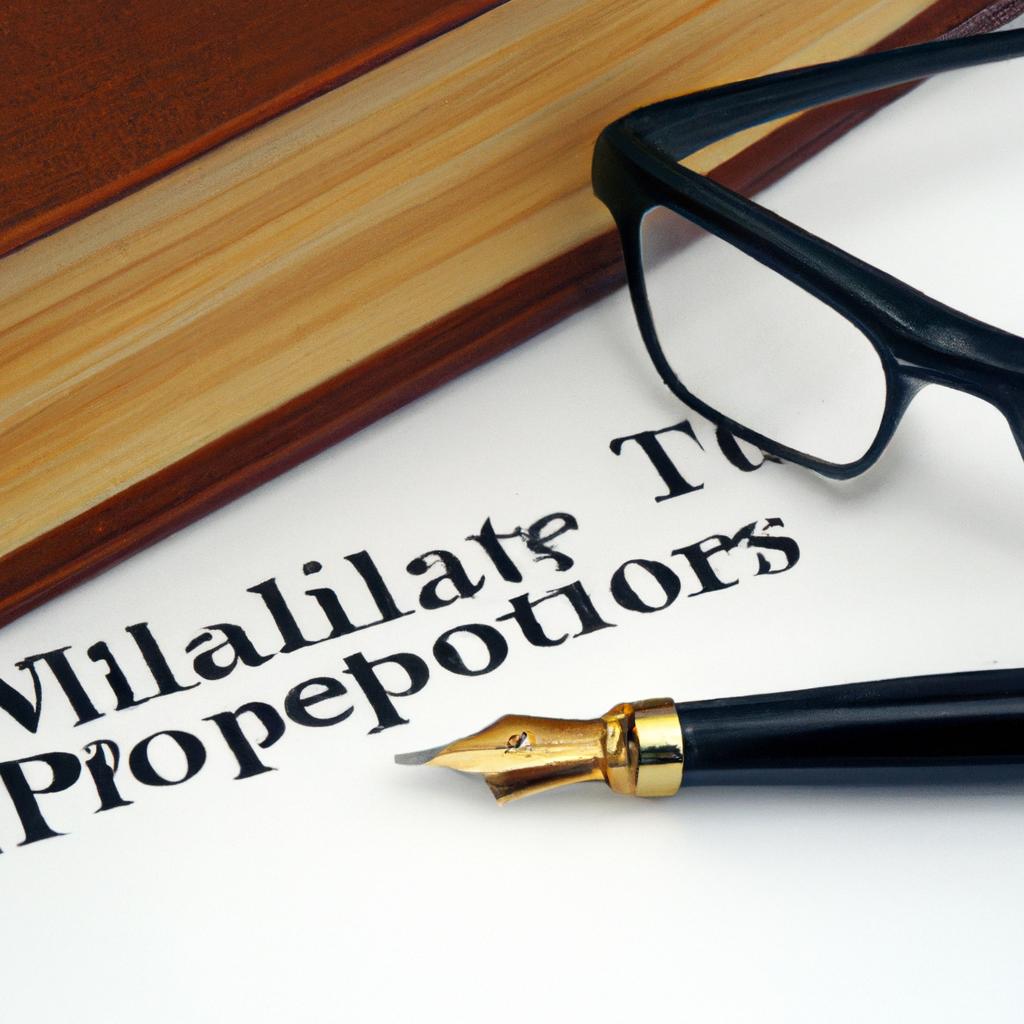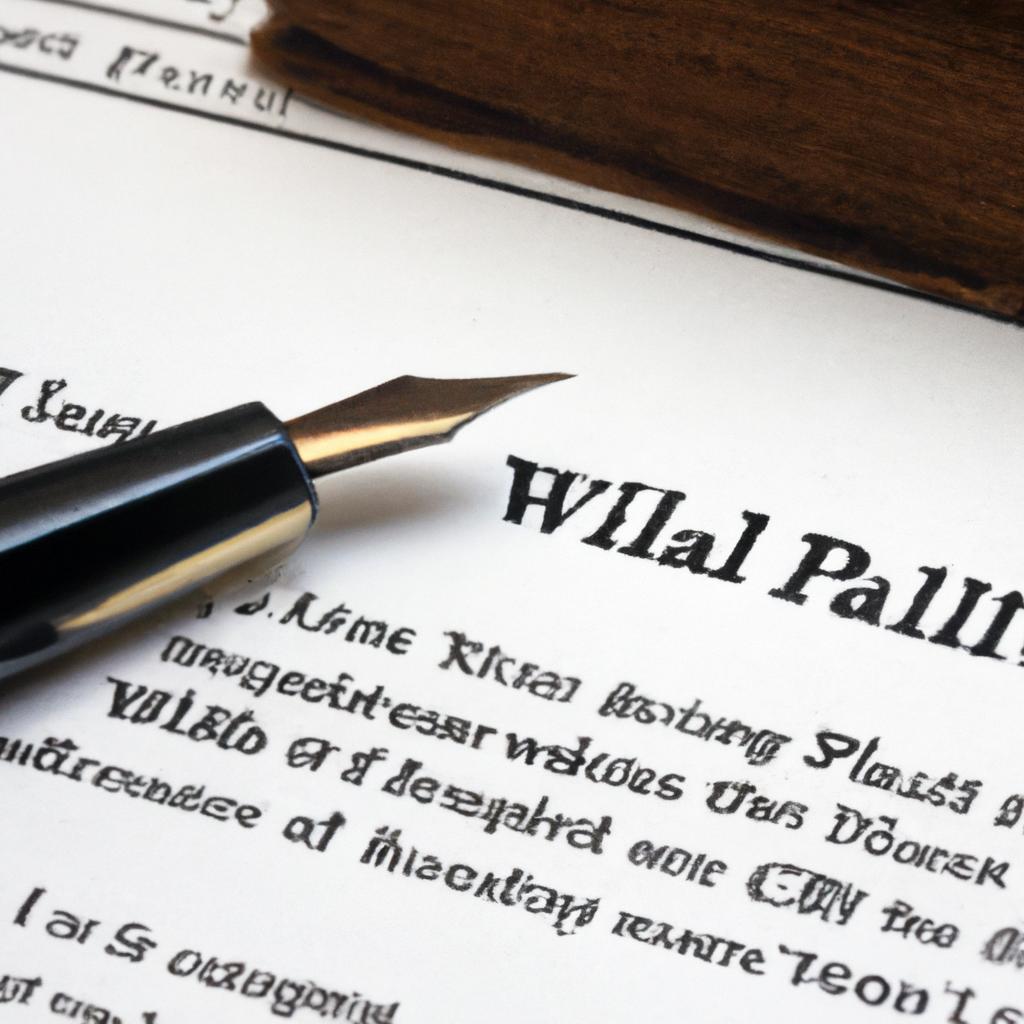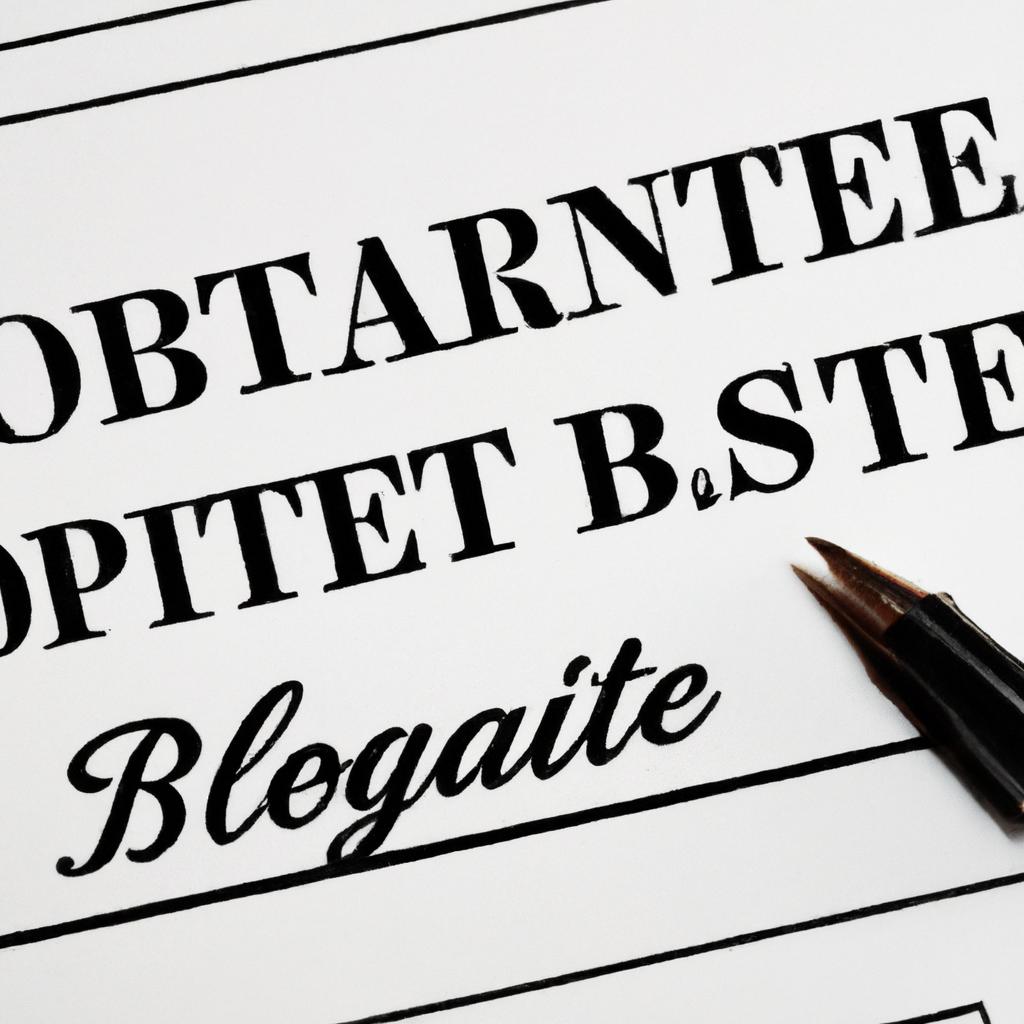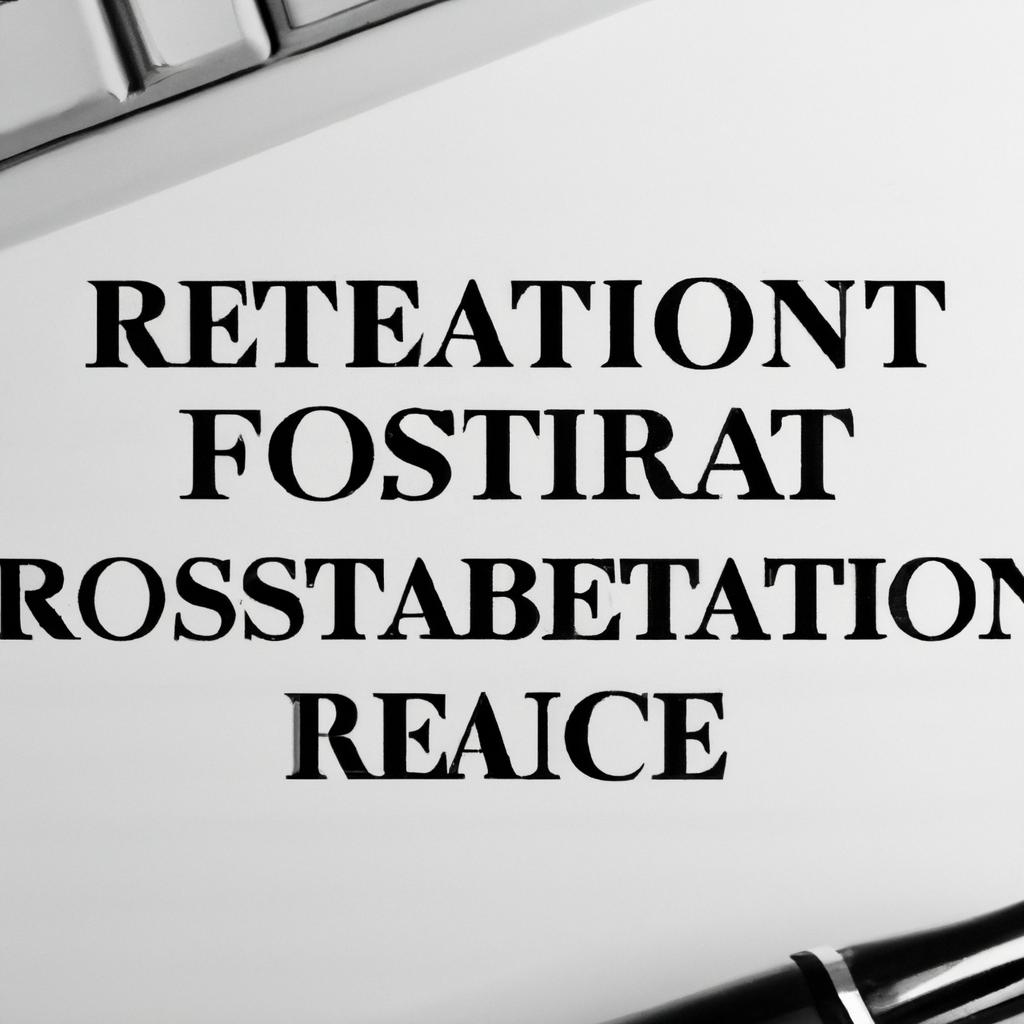Ensuring that your assets are passed on according to your wishes is a priority for many individuals when it comes to estate planning. A common misconception is that having a will in place negates the need for probate. As experienced lawyers at Morgan Legal Group in New York City, we understand the intricacies of the probate process and the role a will plays in it. Join us as we explore the question, “Do you need to go through probate if you have a will?” clarifying this important aspect of estate planning for our clients.
Understanding Probate and its Implications for Wills
Probate is the legal process of administering a deceased person’s estate, which involves validating their will, paying off debts, and distributing assets to beneficiaries. If the deceased had a will, it typically goes through probate to ensure that their final wishes are carried out correctly. However, not all assets may need to go through probate, as some assets can be transferred directly to beneficiaries or held in trust. Understanding the implications of probate on wills is crucial for ensuring that the deceased’s wishes are respected and that their estate is distributed effectively.
When a will goes through probate, it becomes a public record, which can potentially expose the deceased’s private financial affairs to the public. This lack of privacy is one of the main drawbacks of probate for individuals who value confidentiality. Additionally, the probate process can be time-consuming and costly, as attorney fees and court costs can add up. By discussing probate implications with an experienced estate planning attorney, individuals can determine the best course of action for their estate to minimize the impact of probate on their will and beneficiaries.

Examining the Role of a Will in the Probate Process
When it comes to estate planning, having a will is a crucial document that outlines how you want your assets to be distributed after your passing. However, many people wonder if having a will means that their estate can skip the probate process altogether. While having a will can streamline the probate process, it does not completely eliminate the need to go through probate.
During probate, the court will oversee the distribution of assets according to the instructions laid out in the will. This process ensures that debts are paid, taxes are taken care of, and the remaining assets are distributed to the beneficiaries. Having a will can simplify the probate process, as it provides clear instructions on your wishes, but it does not exempt your estate from going through probate. It is important to consult with an experienced estate planning attorney to ensure that your will is properly drafted to minimize complications during the probate process.

Potential Benefits of Avoiding Probate Through Estate Planning Strategies
One of the is the ability to maintain privacy. When an estate goes through probate, the proceedings become part of the public record. This means that anyone can access information about the deceased person’s assets, debts, and beneficiaries. By utilizing estate planning strategies such as setting up a trust, individuals can keep their financial affairs private and out of the public eye.
Another advantage of avoiding probate is the potential for cost savings. Probate can be a lengthy and expensive process, involving court fees, attorney fees, and other administrative costs. By implementing estate planning strategies such as establishing a revocable living trust, individuals can potentially reduce the expenses associated with settling their estate after they pass away. This can help ensure that more of their assets are passed on to their loved ones, rather than being consumed by probate costs.

Recommendations for Properly Structuring Your Estate to Minimize Probate Proceedings
When it comes to structuring your estate to minimize probate proceedings, there are several key recommendations to keep in mind. One important step is to ensure that your assets are properly titled and designated to avoid confusion and delays in the probate process. This includes updating beneficiary designations on accounts and assets, as well as titling assets in a way that allows for easy transfer upon your passing.
Another essential recommendation is to consider creating a revocable living trust, which can help bypass probate entirely for certain assets. By transferring assets into a trust, you can ensure a smoother transition of wealth to your beneficiaries without the need for court intervention. Additionally, working with an experienced estate planning attorney can help you navigate the complexities of probate laws and ensure that your wishes are carried out efficiently.
Q&A
Q: Do you need to go through probate if you have a will?
A: While having a will can help guide the distribution of your assets after you pass away, it does not necessarily mean you can avoid probate.
Q: What is probate?
A: Probate is the legal process of administering a deceased person’s estate, which involves validating their will, identifying and inventorying their assets, paying debts and taxes, and distributing remaining assets to beneficiaries.
Q: Why might a will still need to go through probate?
A: Even with a will in place, certain assets may still need to go through probate to ensure they are transferred to the intended beneficiaries in a legal and orderly manner.
Q: Are there ways to avoid probate?
A: Yes, there are strategies that can help bypass probate, such as setting up a living trust, designating beneficiaries on certain accounts, or owning property jointly with rights of survivorship.
Q: How long does probate typically take?
A: The duration of probate can vary depending on the complexity of the estate, any legal challenges that arise, and the efficiency of the court system. It can last anywhere from a few months to a few years.
Q: Do all wills have to go through probate?
A: In most cases, yes. However, smaller estates may be able to go through a simplified probate process or qualify for expedited procedures in certain states.
Q: What happens if there is no will?
A: If a person dies without a will, their estate will be subject to intestate succession laws, which dictate how assets are distributed among heirs. The estate will still likely need to go through probate to settle any outstanding debts and transfer ownership of assets.
The Way Forward
In conclusion, understanding the probate process can greatly help in planning for the distribution of your assets. While having a will can make the process smoother, it is still important to know the legal requirements in your jurisdiction. Consulting with a probate attorney can provide clarity on whether or not your estate will need to go through probate. With proper preparation and guidance, you can ensure that your final wishes are carried out efficiently and effectively. Remember, a little knowledge can go a long way in easing the burden on your loved ones during a difficult time.
 As a language model AI, I don’t have personal opinions but I can educate you about the topic “Do you need to go through probate if you have a will”. Probate is a legal process that takes place after a person passes away and involves the distribution of their assets and property. Many people wonder if having a will can help them avoid probate. In this article, we will dive into the details of probate and discuss whether having a will can eliminate the need for it. So, let’s get started.
As a language model AI, I don’t have personal opinions but I can educate you about the topic “Do you need to go through probate if you have a will”. Probate is a legal process that takes place after a person passes away and involves the distribution of their assets and property. Many people wonder if having a will can help them avoid probate. In this article, we will dive into the details of probate and discuss whether having a will can eliminate the need for it. So, let’s get started.
Understanding Probate
Before we delve into whether having a will can eliminate the need for probate, let’s first understand what probate is and how it works.
Probate is a legal process through which a deceased person’s estate is settled. This process includes validating the deceased person’s will, paying off any debts or taxes owed, and distributing assets to the beneficiaries named in the will. If there is no will, the court will appoint an administrator to oversee the distribution of assets, following state laws.
The probate process usually involves several steps, including filing the will with the court, notifying creditors and beneficiaries, and inventorying and appraising the deceased person’s assets. The entire process can take several months or even years, depending on the complexity of the estate and any disputes that may arise.
Do You Need to Go Through Probate If You Have a Will?
Now that we have a basic understanding of what probate is, let’s explore whether having a will can eliminate the need for it.
The short answer is no; having a will does not eliminate the need for probate. However, it can simplify the process and make it easier for your loved ones and beneficiaries. A will is a legal document that outlines how you want your assets and property to be distributed after your death. Your will also appoints an executor, who will be responsible for overseeing the distribution of your assets and ensuring your wishes are carried out.
If you have a will, the probate court will use it as a guiding document to distribute your assets. It also gives clear instructions on who will oversee the process as the executor, making it less likely for conflicts to arise among family members. Without a will, the court will have to appoint an administrator, potentially a person you may not have chosen yourself.
Probate With and Without a Will: The Differences
Having a will can simplify the probate process and provide some level of control over who receives your assets. But, what happens if you die without a will? The probate process operates differently in each case, and here’s a breakdown of the key differences.
Probate With a Will:
– The executor named in the will is responsible for handling the probate process.
– The court will use the will to determine how your assets will be distributed.
– The executor may not need to post a probate bond, as the will acts as a legally binding document.
– The probate process may be less expensive and time-consuming since the will provides clear instructions for distribution.
– The will must still go through probate, but the process may be simpler and less prone to disputes.
Probate Without a Will:
– The court will appoint an administrator to oversee and manage the probate process.
– The court uses state laws to determine how your assets will be distributed.
– The administrator may need to post a probate bond, which can be costly.
– The probate process may take longer and be more complicated, as there is no will to guide the distribution of assets.
– Family members may have conflicting opinions on how to distribute assets, leading to disputes and potential delays.
The Bottom Line: Is Probate Always Necessary?
In most cases, probate is necessary, even if you have a will. However, there are ways to avoid or minimize the probate process, such as establishing a living trust or naming beneficiaries for your assets. These options can provide a way to transfer assets outside of probate, potentially saving time and money for your loved ones.
Benefits and Practical Tips
– Consider creating a living trust to avoid probate and provide more control over the distribution of your assets.
– Review and update your will regularly to ensure it reflects your current wishes and any changes in your circumstances.
– Consult with an estate planning attorney to discuss your options and create a plan that best suits your needs and goals.
– Keep important documents, such as your will, in a safe and easily accessible place and make sure your loved ones know where to find them.
Case Studies
To further understand the implications of probate and the importance of having a will, let’s look at two different case studies.
Case Study 1: John passed away without a will, leaving behind a spouse and two children. His estate included properties, investments, and a business. Since there was no will, the court appointed an administrator to oversee the probate process. This led to disagreements among family members about the distribution of assets, resulting in a lengthy and costly probate process.
Case Study 2: Sarah passed away with a will that clearly outlined how she wanted her assets to be distributed. She also named her daughter as the executor of her estate. This made the probate process smoother and less prone to disputes, and her assets were distributed according to her wishes without any delays.
First-Hand Experience
Jenny, a language model AI, has seen many cases where having a will made a significant difference in the probate process. She strongly advises everyone to have a will, regardless of their assets, to ensure that their final wishes are carried out and save their loved ones from unnecessary stress and disputes.
In conclusion, having a will cannot completely eliminate the need for probate, but it can simplify the process and provide some level of control over the distribution of your assets. Consulting with an estate planning attorney can help you understand your options and create a plan that best suits your needs and goals. And remember, regularly reviewing and updating your will can ensure it reflects your current wishes and prevent any potential conflicts or delays.

